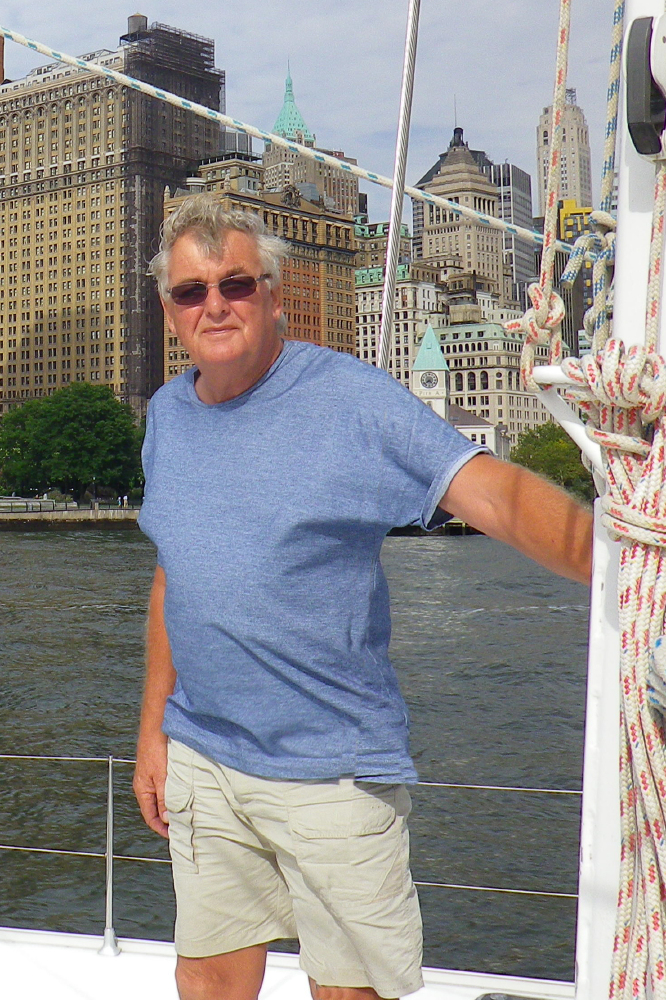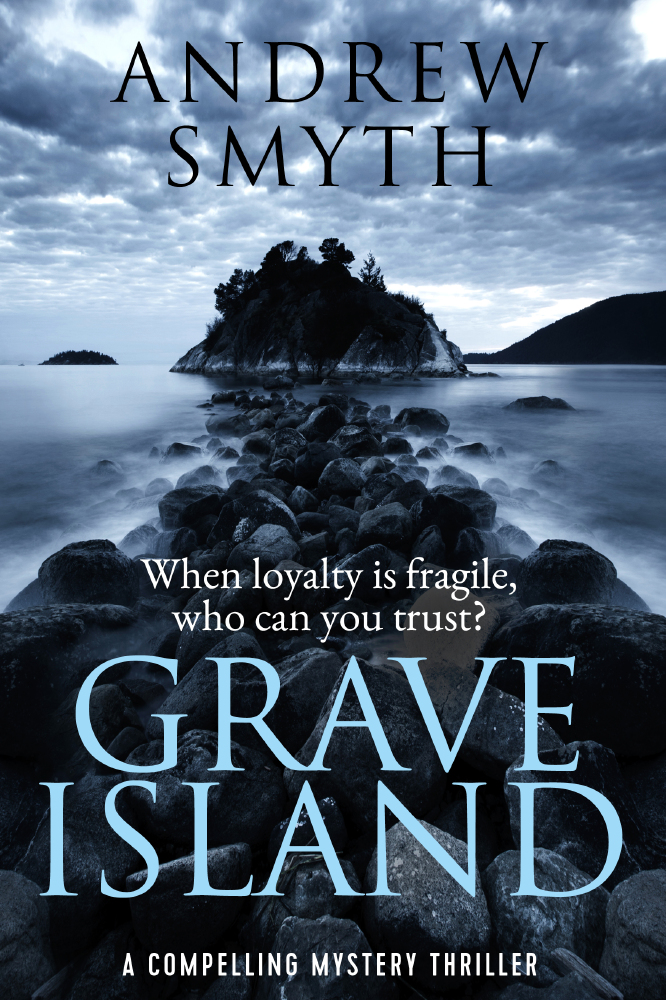My main love is sailing – which I’ve done since I was young. We have been fortunate to sail to many places around the world in our own boat and I’ve tried to use the experiences in my writing.

Andrew Smyth
When I sit down to write, it’s extraordinary the number of other things that suddenly seem more interesting. There’s something about a screen with a blank page waiting to be filled that makes the mind wander. I try to keep it on a leash so I can pull it back to where it should be.
I get bored easily so I’m almost pathologically terrified of not holding the reader’s attention. I sometimes read books that have been lavished with praise and I can’t understand why I’m unable even to finish them. I try to make my story move on quickly and not linger in one place. I also try to impart information. Even in a thriller I’d like to think that at the end of the story the reader has learnt something he or she didn’t know before.
I hate waffle – I like my writing to be clear, spare and crisp. My heroes in this are probably PG Wodehouse and Raymond Chandler, both of whom – was it co-incidence? – went to Dulwich College just ten years apart over 100 years ago. Equally, I hate people trying to be convoluted in their writing. Too many journalists these days serve up “clever” writing with the result that you end up not knowing what they’re trying to say – or even caring. Of contemporary writers, I’m a fan of Michael Connelly and Philip Kerr (who sadly died recently) and I’ve recently discovered Deon Meyer, who’s translated from his original Afrikaans. He is a consummate story-teller and his books are satisfyingly long and meaty.
My first novel, Caesar’s Passage, was based on a true story that we came across while sailing in Dalmatia. It starts in a small island off Dubrovnik that when we first visited had no cars – or even roads. Historically many young men from Dalmatia went off to sea and many still do. I go back to the island from time to time and they still remember me and “their” book.
I put plot ahead of everything because coming up with a good plot is by far the most difficult thing to achieve. I’ve been criticised for doing so by people who think that character is more important. But I’m more interested in a story which keeps the reader turning the pages to find out what happened. I think you can judge a character as well by what he does, as by what he thinks.
Sometimes I can spend ten minutes on a single sentence, trying to get it right. But I hope it doesn’t show. Good writing, like good design, must appear effortless and obvious – even though that’s the last thing it should be. My son Chris is a better writer than I am. He has a way with words that makes complicated things look simple. He also gives me a selection of books every Christmas to introduce me to new thriller writers.
Grave Island has no dedication because who can beat this from PG Wodehouse: “To my daughter Leonora, without whose never-failing sympathy and encouragement this book would have been written in half the time.”
I think locations are important. The imagination is an extraordinary thing and just a few short sentences can transport the reader to exotic places that she can almost smell. Why base a story in a place the reader already knows?
Kindles have been a life-saver because my wife refuses to throw anything away, so we literally have no more shelf space left. Now I can keep my library in the clouds while she keeps her books on the shelves.

Grave Island by Andrew Smyth is out on 28th June (Bloodhound Books, £8.99)

